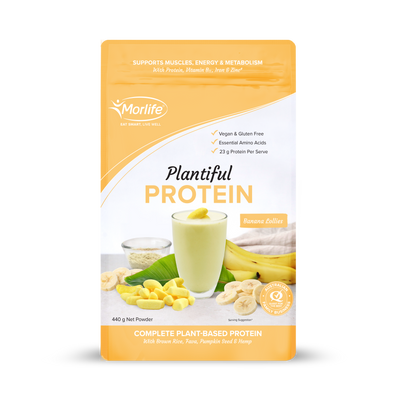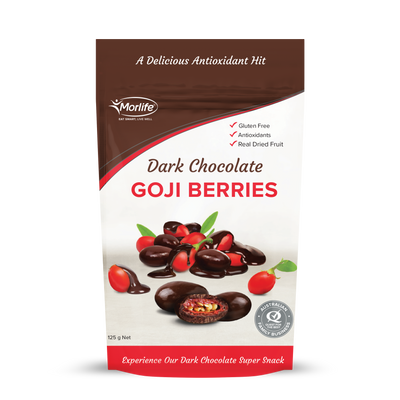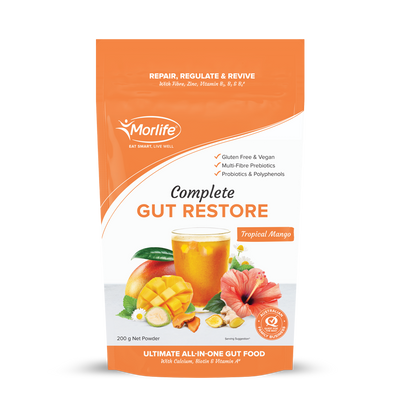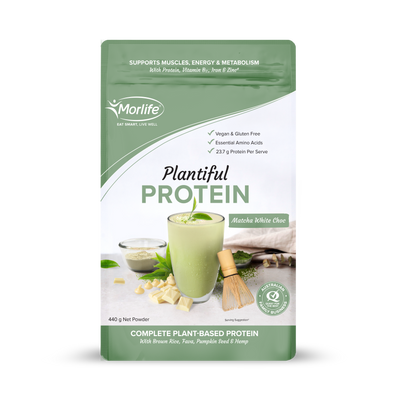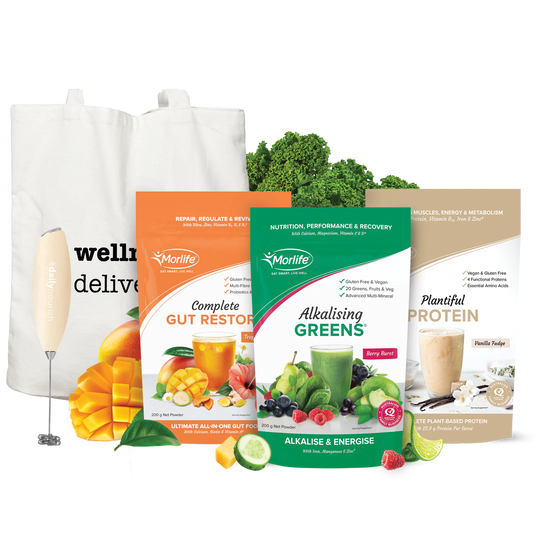What’s the difference between Spirulina & Chlorella?
We all know that Spirulina and Chlorella are amazing super greens powders that add tonnes of benefits to our diet, especially when we eat them on the regular. But what is it that makes them so healthy? Even more so, what is the difference between the two, and which one is better? Naturopath Marlie breaks down the key benefits, similarities and differences between two of our most beloved greens powders.
WHAT’S THE DIFFERENCE?
Spirulina (Spirulina platensis) and Chlorella (Chlorella vulgaris) are single-celled algae and well known super-green powders that grow in fresh or saltwater. These tiny green machines are popular for their abundance of protein, vitamins and minerals, chlorophyll (the green pigment in plants) and beta-carotene (vitamin A). Spirulina is a blue - green algae, with a vibrant emerald green colour while Chlorella is a bright forest green.
Before we go on, there’s one thing we have to clarify. There is so much confusion over the different forms of Chlorella- Whole and broken cell so let's clear this up first. Chlorella has a unique fibrous cell wall which differentiates it from other algae. This strong wall is indigestible for humans, meaning that the nutrients within whole cell Chlorella are not available to the body. However, the cell wall can be cracked using pressure to allow optimal absorption of the nutrients within, without damaging their quality. Whole cell chlorella is lacking in available nutrients, it has a strong reputation for binding to toxins and removing them from the body; however this function has not yet been thoroughly researched. When looking at the nutritional comparisons for chlorella versus spirulina, be mindful this relates to broken cell chlorella.

HOW ARE THEY SIMILAR?
Gram for gram, they are both super low in fats, carbohydrates and sugars but high in bioavailable protein, iodine, iron and provide sources of vitamin B12, chlorophyll and carotenoids. This makes them both amazing as anti inflammatory foods and boosting nutritional intake, particularly on vegan and vegetarian diets.
Here are the benefits of these nutrients:
- Protein – Promotes the repair and growth of muscles and bones. They many essential amino acids and are naturally high protein, though the daily dose is quite small so they give a little protein boost, but are not a major source.
- Iodine – An important nutrient of thyroid health, mental wellbeing, energy and cognition.
- Iron – Supports immune function, cognition and energy levels as well as healthy blood.
- Carotenoids – Important for eye health, iron status and immune function.
- Vitamin B12 – Boosts energy, cognition and the effectiveness of the immune system.
Both Spirulina and Chlorella are substantial sources of vitamin B12 and have been noted as a suitable source of this important vitamin1.
HOW ARE THEY DIFFERENT?
Chlorella is a source of vitamin B1, Biotin and Vitamin D, which helps support:
- Vitamin B1 – energy levels and mental wellbeing.
- Biotin – fat metabolism and energy production, mental wellbeing and skin health.
- Vitamin D – bone, teeth and muscle health as well as a healthy immune system function.
Spirulina on the other hand is a source of vitamins B2 and B6 as well as selenium which helps support:
- Vitamin B2 – Supports iron metabolism and energy levels, promotes healthy skin and nervous system.
- Vitamin B6 – Supports iron metabolism and energy, mental wellbeing, immune support and hormone regulation.
- Selenium – Promotes immunity, supports the thyroid, reproductive system and skin health, protection from cell damage.
It’s also a rich source of the protein phycocyanin, an accessory form of chlorophyll, which gives spirulina its rich blue undertone and acts as a potent antioxidant and immune enhancer2.
WHICH ONE IS BETTER?

Chlorella products have a reputation for everything from supporting detoxification, weight loss, reducing foul smelling breath, constipation and is a popular choice for heavy metal detoxification; however much of this is currently unsubstantiated with scientific research. Evidence does show however that Chlorella is useful to prevent iron deficiency in pregnant women, as well as reducing blood pressure and total cholesterol.
Spirulina is often recommended for everything from weight loss, fertility, liver support, high blood pressure, skin and hair health, depression, blood sugar problems and arthritis. Again, while some of these may be logical (spirulina is high in selenium which is important for skin and hair health), these benefits are not always supported by scientific research. Spirulina has been established as a way to improve fatigue, immune dysregulation and high cholesterol.
Both Spirulina and Chlorella are great choices for boosting your nutrient levels. Typically, you only need about 3-4 grams of spirulina or chlorella to as a boost but this may vary depending on your specific requirements and nutrient status so it’s best to dose according to your own needs. Both chlorella and spirulina supplements have a distinct taste, making it sometimes helpful to take chlorella and spirulina tablets. For general nutrition support a combination of the two is ideal, because they have many benefits and the more the merrier!
Read More
Blue Spirulina - What is it and why is it good for you?

